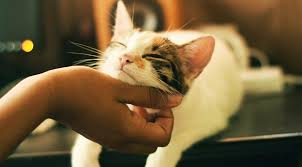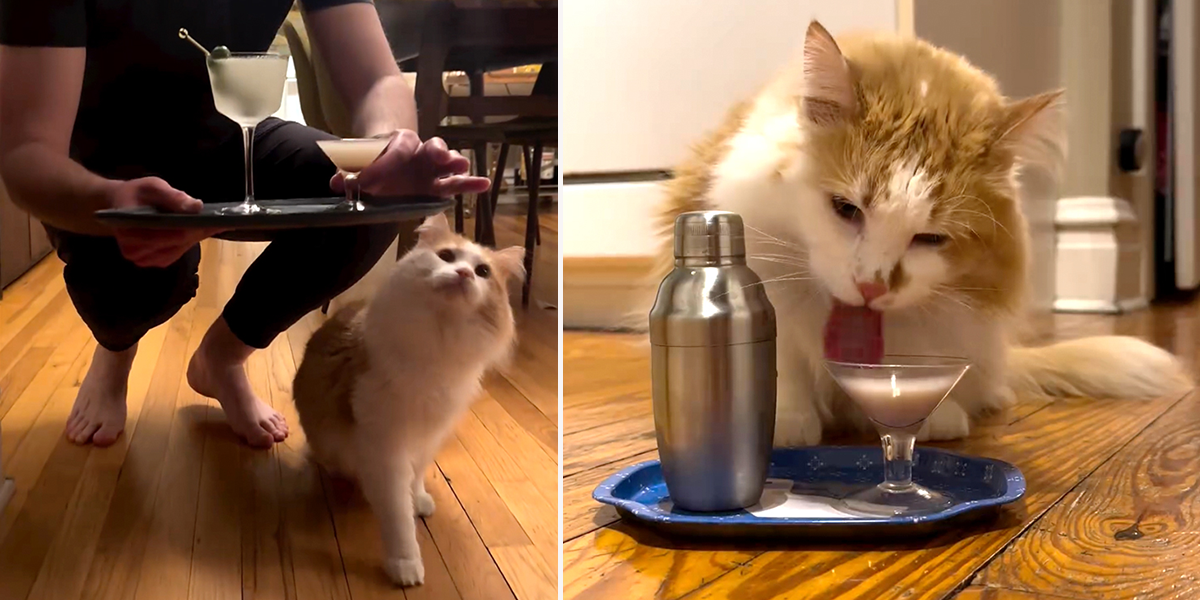Last Updated on August 12, 2022 by Dogs Vets
7 Foods Your Cat Might Not Like
If you notice that your cat is not enjoying certain types of food, it is best to take them to a veterinarian. Although some foods might cause some slight discomfort in your cat, others may actually pose a health risk.
Read on to learn about 7 Foods Your Cat Might Not Like!
Some foods are poisonous to cats, even though they look delicious. Find out why these foods aren’t good for them. Cats love to eat! But sometimes, they also love to eat things that are bad for them.
These include foods that contain chemicals called pesticides, which can cause liver damage in cats.
If you want to keep your cat from eating something that could harm him, try putting it into a sealed container. You can then place the item inside a plastic bag, seal it tightly, and put it in the freezer. Once frozen, you can remove the item from the bag and throw it away.

Cats love to eat, but sometimes they don’t like what they’re eating. These 7 foods might be toxic to them because there are toxic foods that cats cannot eat as many common human foods are toxic to cats.
Here are the Top 7 Foods Your Cat Might Not Like
1. Avocados
Avocado contains an enzyme called alpha-mannosidase, which breaks down mannose sugar molecules. This makes avocados toxic to cats because they cannot break down the mannose sugars.
What happens when a cat eats an avocado?
While you may want to avoid feeding your cat avocado peels and seeds, be aware that too much avocado skin can cause gastrointestinal problems in your cat. This can also includes an upset stomach, vomiting and diarrhea.
2. Onions
Onion toxicity is a serious medical condition for cats, and it’s best to get them checked out as soon as possible. Symptoms of onion poisoning include early-onset vomiting, pale gums, rapid breathing, and elevated heart rate.
Your cat may also experience abdominal pain and discolored urine. It might take several days for these symptoms to become apparent, but it’s important to treat the condition as soon as possible.
3. Grapefruit
If you have a cat, you should know that grapefruit can cause severe allergic reactions in some cats. If you find that your pet is sensitive to grapefruits, you should consult a veterinarian immediately.
Medications for cat allergies to grapefruits are available, but it is important to give them in time. Even if your cat doesn’t seem to have any adverse reactions to grapefruits, it is still important to keep in mind that grapefruits are high in carbohydrates and sugars.
While it might not be easy to take your cat to a veterinarian, it is necessary to protect your cat’s health.
4. Almonds
Almonds contain a compound called amygdalin, which is toxic to cats. Cats metabolize amygdalin by breaking it down into glucose and cyanide.
What happens if a cat eats almonds?
Almonds are not toxic to cats, but they have little nutritional value. Cats have short digestive tracts and cannot digest almonds properly. In most cases, if you allow your cats to eat more than one or two almonds, they can suffer from indigestion, vomiting, and possibly diarrhea.
5. Apples
Apples are beneficial to health, and it is common knowledge that dogs can enjoy an apple slice now and then. However, is it possible for cats to enjoy apples as well?
If we constantly want to make sure that our feline companions are getting the healthiest and most nutrient-dense diets, then we need to know if apples are one of those things.
Apples could trigger an allergic reaction in some cats, causing them to vomit, have diarrhea, or display other uncomfortable symptoms.
Your cat’s stomach may become upset if it eats an excessive amount of apple.
Apples should be offered only on rare occasions and in quantities that are considered normal. Because they are not a complete and balanced food, they should only be given as a treat. This means that they shouldn’t account for more than 10% of the total number of calories that your pet consumes on a daily basis.
While apples and grapes are both high in fiber, they also contain compounds have been proven to cause vomiting and diarrhea in cats. These compounds are found in the seeds and stems of the fruit. If your cat eats too much of either apple or grape, he might vomit or have diarrhea.
6. Bananas
Cats are very sensitive to bananas because they contain an enzyme called amylase, which breaks down starch into sugar. This enzyme is present in the banana peel as well as the flesh of the fruit. Because of this, cats who eat bananas often develop diarrhea.
7. Beans
Are beans toxic to cats?
Your cat will not become extremely ill from eating beans because they are not poisonous. Depending on the amount of beans that were consumed, it could be a bit unpleasant for your kitten for the next day or two, but once everything has passed out of their system, they will be back to normal. Although digestion of beans may take some time, eating them shouldn’t create any long-term health problems.
Other common foods that are toxic to cats include, garlic, chocolate, raisins, and coffee beans. These foods contain chemicals that cause vomiting, diarrhea, and other symptoms.
Questions People Are Asking
Can cats eat pickles?
Yes, you can give your cat a taste of pickles, but most types of pickles are too salty for cats. In addition to salt, most pickles contain onions and garlic, which are toxic for cats.
Non-salted pickles, however, are usually safe. If you do decide to give your cat a taste, be sure to select a brand that doesn’t contain onion or garlic.
Can cats eat Blueberries?
Cats are not toxic to blueberries, and they can safely eat them in moderation. This healthy fruit is a good source of antioxidants, fiber, and vitamin C.
However, consuming blueberries should be limited to small amounts. In moderation, a small handful of blueberries can be a cat’s perfect treat. Just make sure to wash the blueberries first. Cats can tolerate a small amount of blueberry extract.
Facts Check
We hope you enjoyed this article… What are your thoughts on Foods Your Cat Might Not Like?
Рleаse feel free to share this article!

















